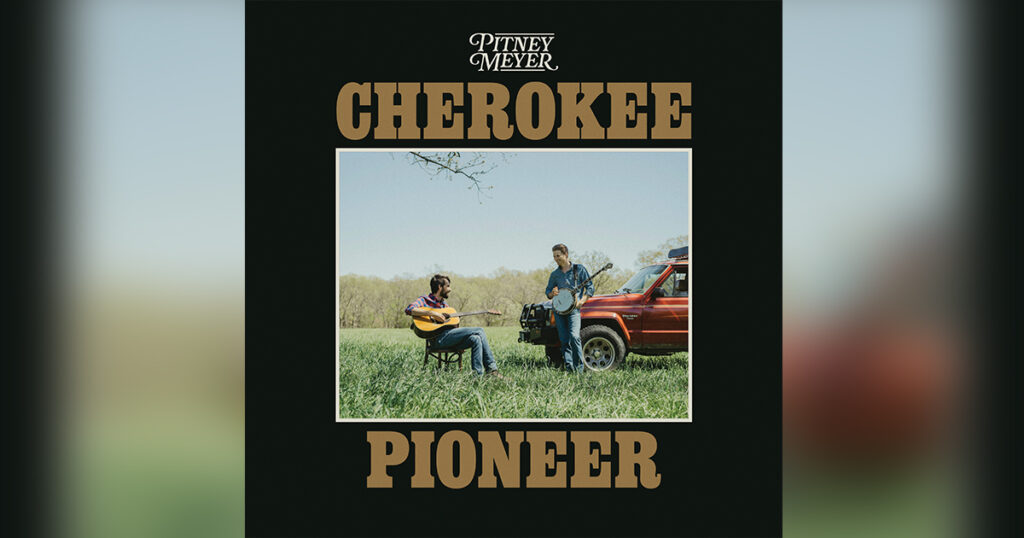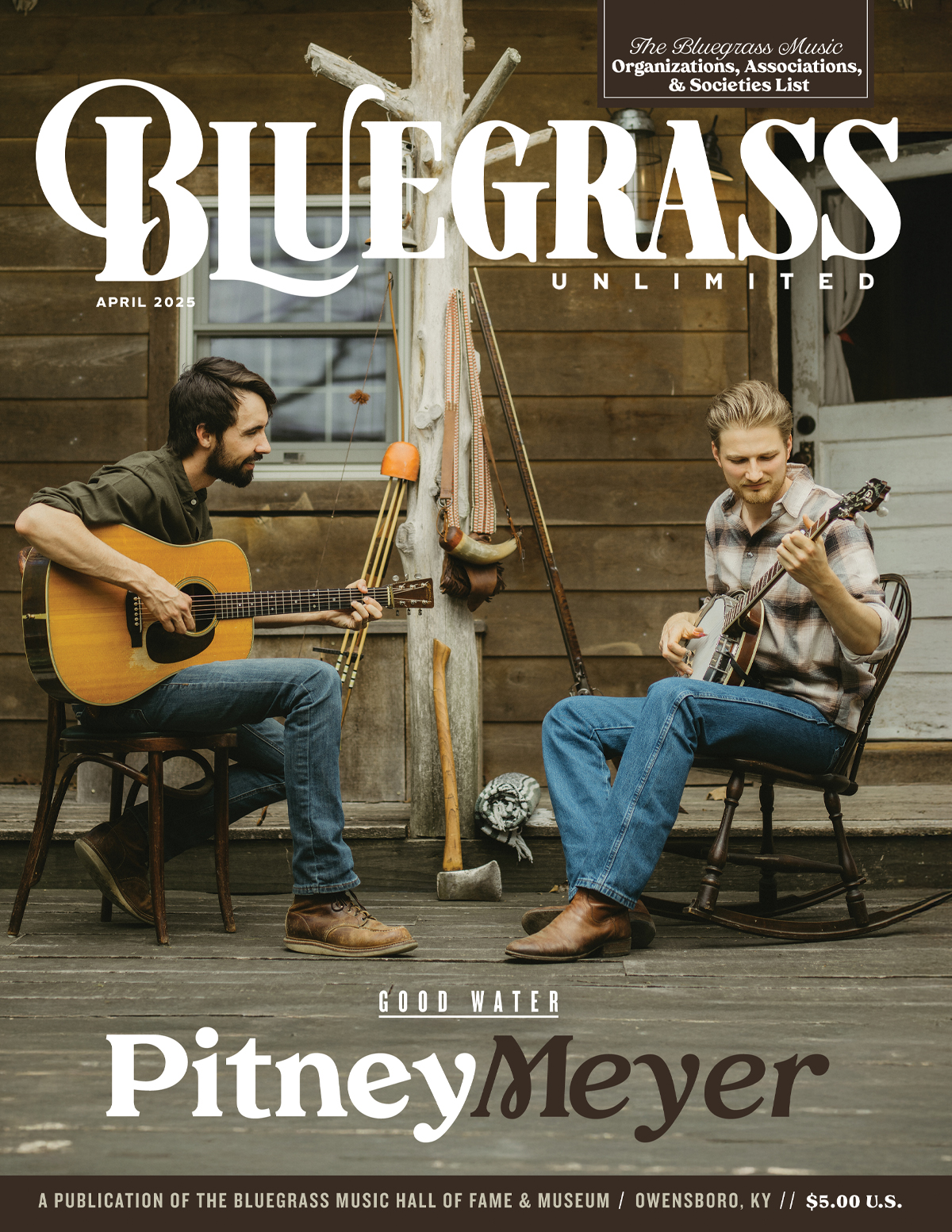Cherokee Pioneer
Pitney Meyer is the Nashville-based duo of singer-songwriters Mo Pitney and John Meyer, from, respectively, Illinois and Missouri. Both came out of family bluegrass backgrounds. The two first crossed paths at an IBMA convention in Nashville a decade and a half ago. Since then, their friendship and musical association have flourished. Along the way, they’ve both pursued solo careers, and Pitney has made some impressive recordings for Curb Records. The recent culmination of their collaboration has been a sold-out residency at Nashville’s Station Inn.
Their debut album (where they are joined by a handful of all-star pickers) has the feel of an instant classic. It features, among other assets, top-notch songwriting, spot-on harmonies, and masterful picking. In search of maximum spontaneity, the tracks were recorded directly to analog tape in a 19th-century cabin in rural Tennessee once owned by Johnny Cash.
A subtle subtheme of Cherokee Pioneer is the severe mistreatment of the Native Americans of the Southwest during the forced migration known as the Trail of Tears. (Hence, the song “Trail of Tears,” one of quite a few co-written by Pitney and Meyer.). “White Corn Graves” (written by Darryl Miller) is a sad, mystical song about a legend surrounding the unmarked graves of Indian children, marked by intriguing lyrics and soaring harmonies.
Not all the songs are topical. “That Sounds Lonesome” is a robust high-lonesome anthem. Then there’s the tongue-in-cheek, good-timey “Banjo Player in a Bluegrass Band,” the soulful “Old Friend” and the boisterous “Bear Creek Clay.” There’s also a trio of high-octane original gospel numbers: “Walk in the Way,” “River of Living” and the powerful a capella “Lord Sabbath.” An added bonus is a haunting grassified reprise of John Anderson’s “Seminole Wind.”

